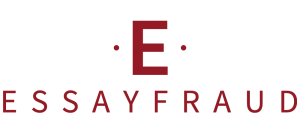How to find credible sources for your research
In finding reliable information for your research, the ability to identify and use reliable sources is key. From government reports to scientific articles, navigating the complex world of information requires you to not only be technically proficient, but also to think critically. In this article, we’ll look at key strategies and tips for choosing and using credible sources so that your research is not only informative, but reliable.

Credible source definition
A credible source is one that is considered trustworthy, reliable, and authoritative in providing accurate and verifiable information. Such sources are typically characterized by a commitment to objectivity, transparency in their methodology, and a reputation for accuracy and expertise in the subject matter. Credible sources can include peer-reviewed academic journals, reputable publications, official government reports, recognized experts in the field, and established institutions or organizations with a history of reliability. Evaluating the credibility of a source is a critical skill in research, ensuring that the information used is of high quality and can be relied upon to support a robust and well-informed argument or conclusion.
Need help WRITING RESUMES?
Just submit your requirements and choose a resume writer. That’s all we need to write a winning resume for you.
How to choose a definition essay topic
Credibility of the source is a key criterion when evaluating information. First of all, the authority of the source is based on the qualifications and experience of the author. It is important to check whether he has professional knowledge in this area. In addition, the source must be independent of the conflict of interests in order to avoid the influence of external factors on the objectivity of the information. Relevance and timeliness of information is another important aspect. The fresher the data, the more they correspond to the current state of affairs. Sourced information, as well as publications in scientific journals or recognized print publications, also increase credibility. Summarizing, authority, independence, relevance and relevance of information are the main signs of a reliable source.
Ground rules on how to find credible sources

Try to find the latest sources: The requirement for references is to use the most recent sources. Avoid using sources that are more than five years old.
Analyzing the author’s background: It is very important to source research that has a minimal amount of bias. Ask yourself: Is the writer pursuing a specific agenda? Does the author work for a university, or a private institution?
Use Verified Sources: Make sure professionals or academics have verified references before using them. Usually, these sources come with a seal or statement of approval. To ensure sources are relevant, unbiased and accurate.
If you use search engines, make sure they are reliable: Google Scholar, for example, is a powerful search engine that serves as an excellent tool for students by providing the most accurate, relevant, and up-to-date publications from institutions – worldwide.
List of credible sources for research
- JSTOR: Platform for research. This allows students to find the content they need, and helps authors bring their publications to a wider audience.
- Google Scholarship: This search engine allows students to find websites and scientific publications that are the most up-to-date and relevant to the search terms used. Google scientific articles are by far some of the most accurate sources to use in your paper.
- Oxford Academic: Ran by the University of Oxford Press, publishes a high quality journal. To reach “the widest possible audience.” They offer research topics for every subject area.
- Microsoft Academic: The platform provides top authors and institutions for reference as well as statistics for all types of studies.
- Cornell University Libraries: An online library that provides references. They operate online, as well as in person. They serve as helpful assistants to students, professors, and general research for university projects.
- Publishing Sage: This organization provides up-to-date publications. With updated papers published annually. They provide 1800 credible sources, every year.
- Taylor and Francis Online: This scholarly website allows students to browse publications by subject area. It has more than 4 million sources available for reference.
- Academic Journals: By providing a reliable source for research, this website provides access to thousands of up-to-date, peer-reviewed academic journals. It also organizes conferences for any of those who are interested.
- USA. GOV: Provides insight into American law, traveling to the US, and immigration services.
- Uk.gov: Provide visitors with information on Brexit, British Law, advice for travelers & immigration services.
- Canada.gov: Provides insight into Canadian culture, law, immigration and traveling.
- uae.gov: Welcome tourists to visit the UAE, provide information regarding laws, and travel advice.
- Australia.gov: Provide visitors with insight into Australian law, travel advice and immigration.
Are .gov websites reliable?

Conclusion
In conclusion, the credibility of the source plays an important role in forming a correct understanding of information. Authority, independence, relevance, and timeliness are critical criteria that help determine how much information can be trusted. When studying any thematic issue, it is important to be attentive to the sources, check their authority and make sure of their reliability in order to avoid the spread of inaccuracies and ensure the objectivity of the information received.
